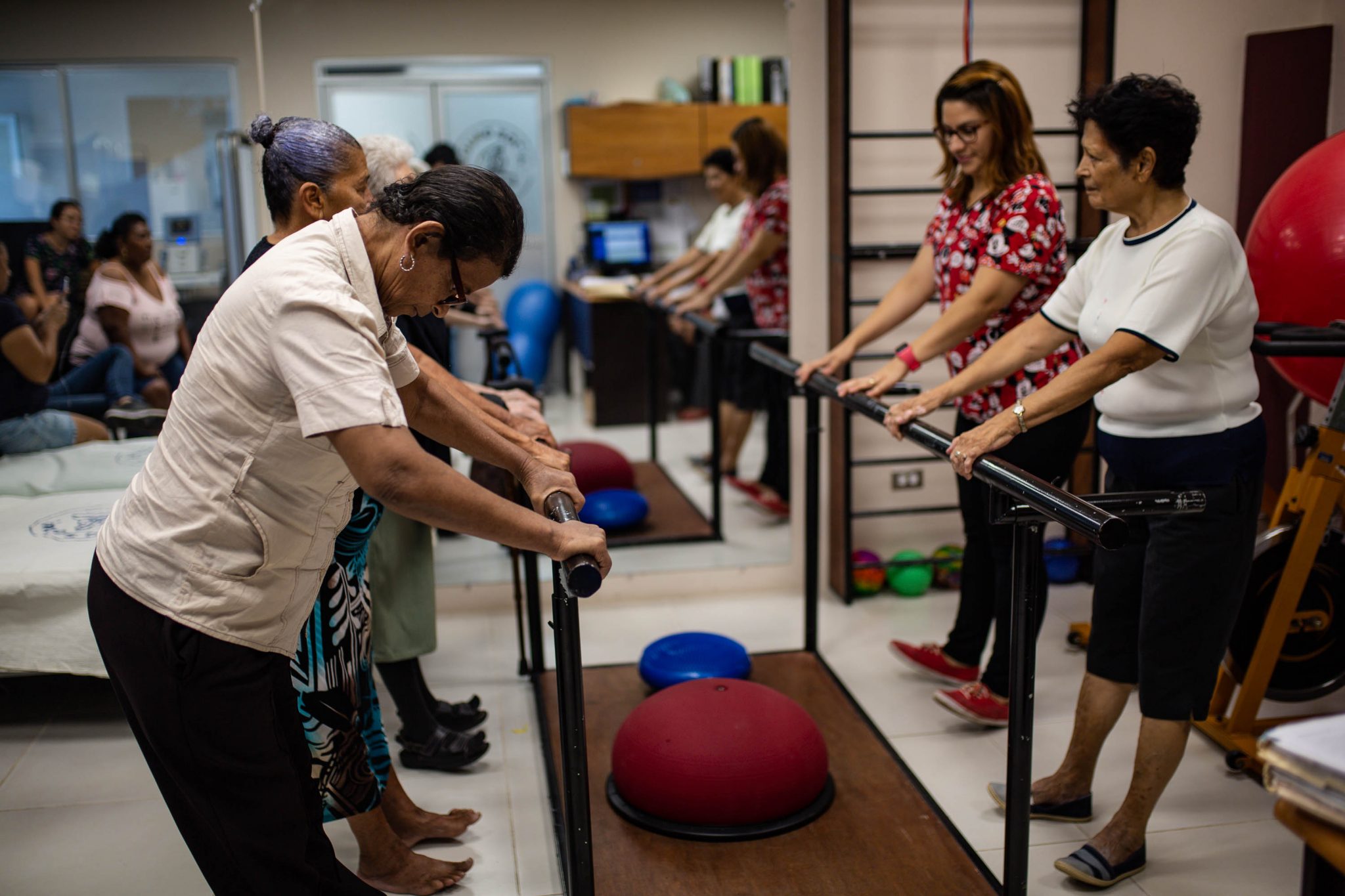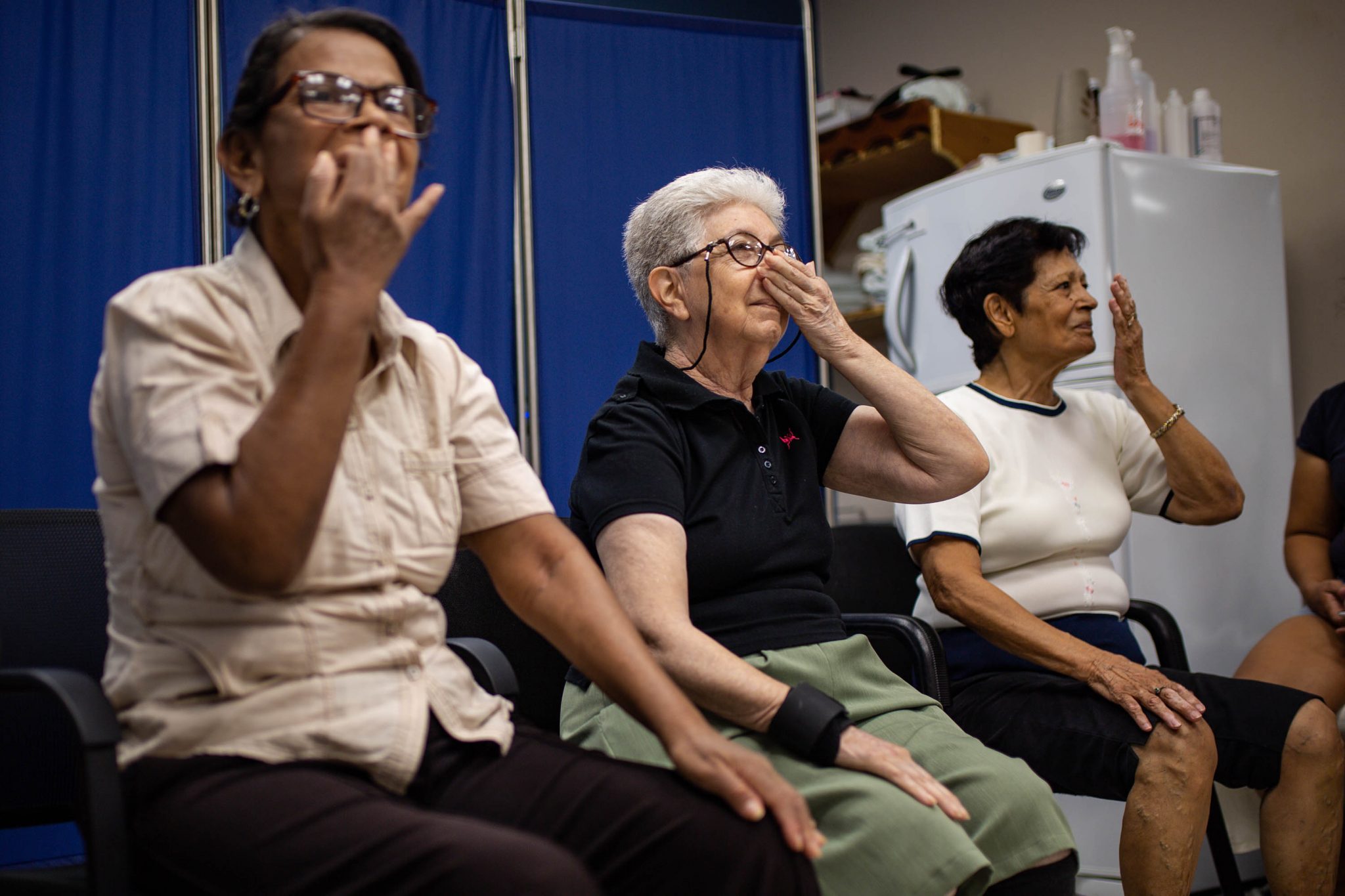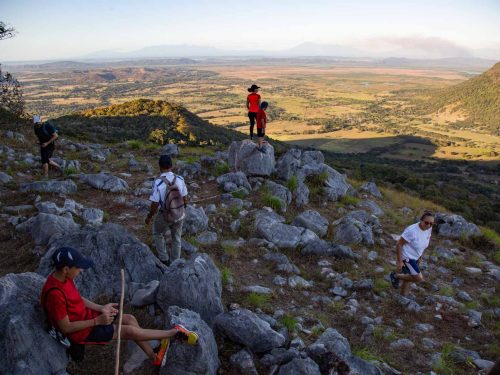
“What’s the exercise to put our socks on or dry our feet,” physical therapist Angie Jiménez asks a group of senior citizens in a caring tone. Sitting down with a small weight in her hands, one of the students remembers the movement and performs it immediately. The other three students see her and follow along carefully.
The course is held in a narrow room with a ton of physical therapy tools. “Pay attention, girls. We adapt exercises to daily life activities,” Jiménez says.
It’s Thursday morning and we are in a session at the Clínica de la Marcha, a program at the Cañas health center that seeks to boost mobility for senior citizens and, along with it, their independence and safety.
The program consists of four sessions and a review over the course of a month and a half. Today is the third session for the senior citizens in Jiménez’s group. They start by sitting in chairs and going over exercises from the previous class with a dumbell, a ball and weights on their ankles. Then they move to the bars to practice balance.
Left food up. Elena, count to 10,” the physical therapist says while the students concentrate. At times, they laugh as they think about how they are able to stand on one foot, mount a balance ball and do squats, things they once thought unimaginable.
The physical therapist, a family doctor and a nurse teach groups of four patients strength, balance, coordination, mobility and resistance. They also help them activate their brains with mental exercises.
Doctor Élnida Acevedo and the physical therapist say that the program helps seniors socialize with others and reduce hospital costs from falls or fractures.
“We have had patients come with canes and then come without it to the last class, or patients that fall five times per week and now haven’t fallen in a month and-a-half,” Jiménez says. “Some of them have been sitting at home isolated and are able to get back to life and activities thanks to the rehabilitation.”
“I can’t say that I feel totally secure, but I do feel much calmer now that I’m doing exercises,” says Elena Gómez, a 78-year-old patient with arthritis.
The four adults that receive the therapy today made an effort to perform the exercise. It’s a space where they find support and socialize while strengthening their limbs at the same time.
When a senior citizen stays at home and doesn’t go out, the family dynamic deteriorates. An active senior citizen that goes to the store alone wants to spend quality time with their family. That’s the senior citizen we want, one that ages healthily,” says family doctor Élnida Acevedo.
The Clínica de la Marcha was launched in November and has graduated 16 senior citizens in groups of four each.
Who are the adults?
Patients are referred to the Clínica de la Marcha during home visits, emergency services, health clinics, doctor appointments or even by the Liberia Hospital.
“Patients can’t be too deteriorated because they have to walk,” Acevedo says. “The idea is to help them prevent falls and fractures and that requires teamwork. If doctors in other services haven’t been made aware, they aren’t going to refer them.”

Adults stand on their heels and hold on to bars to practice balance. Photo: César Arroyo Castro
Medical personnel at the Cañas health clinic had a meeting to present the project. That way everyone is aware and they know when to refer a patient.
In order to form the groups, they consider the order in which they were referred and their mobility range. “They have to have similar capabilities. If they don’t, a patient may get frustrated when they see another student be able to a squat and they can’t,” the physical therapist said.
It’s also indispensable for patients to arrive with their caretaker so that they can help them practice at home.
According to the doctor, during the review sessions they have noticed that the majority of patients still struggle with some exercises. “There are problems when they don’t remember the circuits, which is why we let the family take videos so that they remember, Acevedo said.
She added that the clinic needs to improve two things. It needs a bigger space so it can receive more senior citizens and groups exclusively for male seniors.
There are few men that have been referred because one of the requirements is that patients are willing to go and men don’t want to. It’s a cultural matter that has to do with chauvinism,” Acevedo said.
Meanwhile, those who do come to the clinic are able to improve their capabilities.








Comments